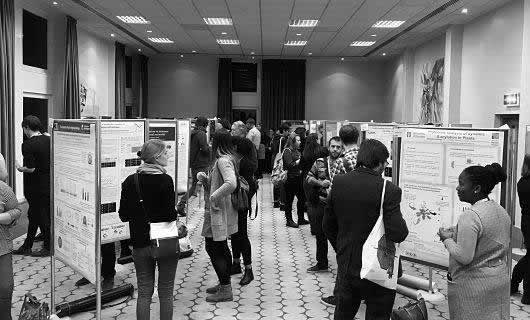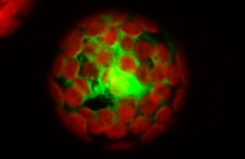News
New editorial preview in Molecular Cell on "Modulating the Modulator"
![]() Edinburgh, 17 August 2017 - The Spoel Research Group writes an editorial preview in Molecular Cell that discusses an important new publication from the Prof. Jianru Zuo's group at the Chinese Academy of Science in Beijing. The commentary discusses their findings on how nitric oxide signalling controls protein methylation during responses to abiotic stress.
Edinburgh, 17 August 2017 - The Spoel Research Group writes an editorial preview in Molecular Cell that discusses an important new publication from the Prof. Jianru Zuo's group at the Chinese Academy of Science in Beijing. The commentary discusses their findings on how nitric oxide signalling controls protein methylation during responses to abiotic stress.
Post-translational protein modifications dramatically expand the number of protein forms and functions within the cell. In a recent publication, the Spoel Research Group highlighted that many post-translational modifications cross communicate to fine-tune the action of cellular proteins and enzymes. Now work from the group of Prof. Jianru Zuo at the Chinese Academy of Sciences in Beijing further revealed that this cross talk feeds back onto the formation of some post-translational modifications.
Lucas Frungillo and Steven Spoel provide an editorial commentary in Molecular Cell to discuss these findings on how nitric oxide signalling controls protein methylation. Protein methylation is an important modulator of signal transduction pathways, but methyltransferases themselves may also be modulated. It is demonstrated that S-nitrosylation selectively modulates enzymatic activity of a protein arginine methyltransferase vital to abiotic stress tolerance.
Links:
Editorial commentary in Molecular Cell
Read the publication from our library
Other News
BBSRC Discovery Fellowship awarded to Lucas Frungillo
Cellular trash bins show a surprising activity that controls plant immunity
Brexit "no-deal" is a bad deal for science
GARNet report on plant science funding
Report published on GARNet-SEB meeting
Cell Scientiest to Watch: Steven Spoel







